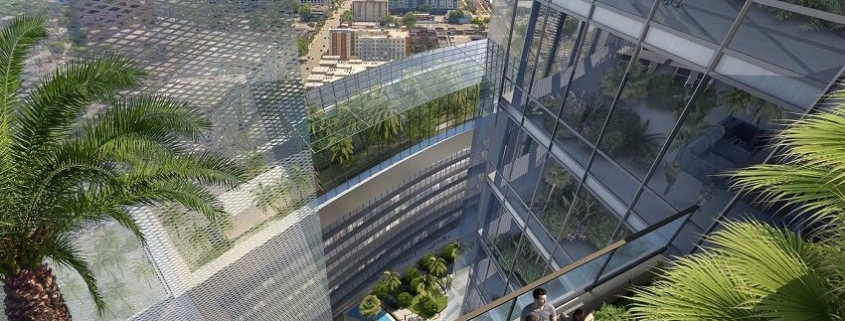Nicklaus Children’s Hospital plans to sell the failed Miami Medical Center, a specialty hospital that Nicklaus Children’s bought just over two years ago for $88 million, after deciding to focus its growth strategies on more outpatient clinics and its own Coral Terrace campus.
The decision to sell the building follows a year of financial instability, layoffs and administrative changes. At the time of the purchase, in December 2017, questions surrounded the financial underpinnings of the deal. That included questions about the nonprofit Nicklaus Children’s financial interests in the for-profit ventures associated with the Miami Medical Center. Miami Medical Center, located near Miami International Airport, closed in October 2017.
Matthew Love, who took over as chief executive officer on an interim basis in June last year, also announced this week that he will begin serving as the hospital’s permanent CEO. Love said he couldn’t answer questions about the relationship between the nonprofit hospital and the for-profit ventures because much of the arrangement predated his time with the hospital.
Before the bankruptcy filing, one of Miami Medical Center’s biggest investors was Nicklaus Children’s, which served as shareholder, lender and manager of the hospital through a venture called Miami Hospital Holdings. In March 2018, the company that operated Miami Medical Center filed for Chapter 11 reorganization, listing $21.4 million in assets and $67.3 million in liabilities.
Love said the hospital has retained an outside consulting firm to help with the sale, and that Nicklaus Children’s board signed off on the decision to sell. The CEO declined to list a specific price for the facility but said Nicklaus Children’s would sell the building for the “best price we can get.”
“The sale makes sense with Nicklaus Children’s growth strategy,” Love said. “When you talk about expansion and growth, it doesn’t always have to be brick and mortar. Miami Medical Center was right down the street. What I’m not really interested in is replicating high-end services — those are expensive.”
Sal Barbera, a former healthcare executive who now teaches healthcare administration at Florida Atlantic University, said he thinks the decision to sell the building goes beyond growth strategies and has more to do with the hospital’s current financial condition.
“They need to unload that asset, they need the cash,” Barbera said. “They didn’t buy it that long ago.”
In 2014, Nicklaus Children’s — when it was still an investor — signed on to guarantee up to $70 million of financial obligations related to Miami Medical Center. When the private hospital defaulted on its debts, Nicklaus Children’s paid a total of $14 million in 2017 and 2018, according to an analysis by Fitch Ratings.
During 2018, Nicklaus Children’s also funded $7 million of Miami Medical Center’s operating costs as part of its obligations. Miami Medical Center’s bankruptcy was finalized in January 2019.
The company that invested in Miami Medical Center was partly owned by a for-profit corporation whose officers were made up of Nicklaus Children’s board members and executives, including former CEO Narendra Kini, former CFO Timothy Birkenstock and April Andrews-Singh, a senior vice president and general counsel.
Love, the current CEO, said he is hopeful that the Florida Legislature’s deregulation of hospital building guidelines will make the facility attractive to out-of-state healthcare providers or providers from elsewhere in the state.
“What I’m interested in us doing is focusing on the fundamentals,” Love said. “We’re the best pediatric healthcare provider in Florida, and we need to focus on that. That’s who we are.”
Source: Miami Herald





